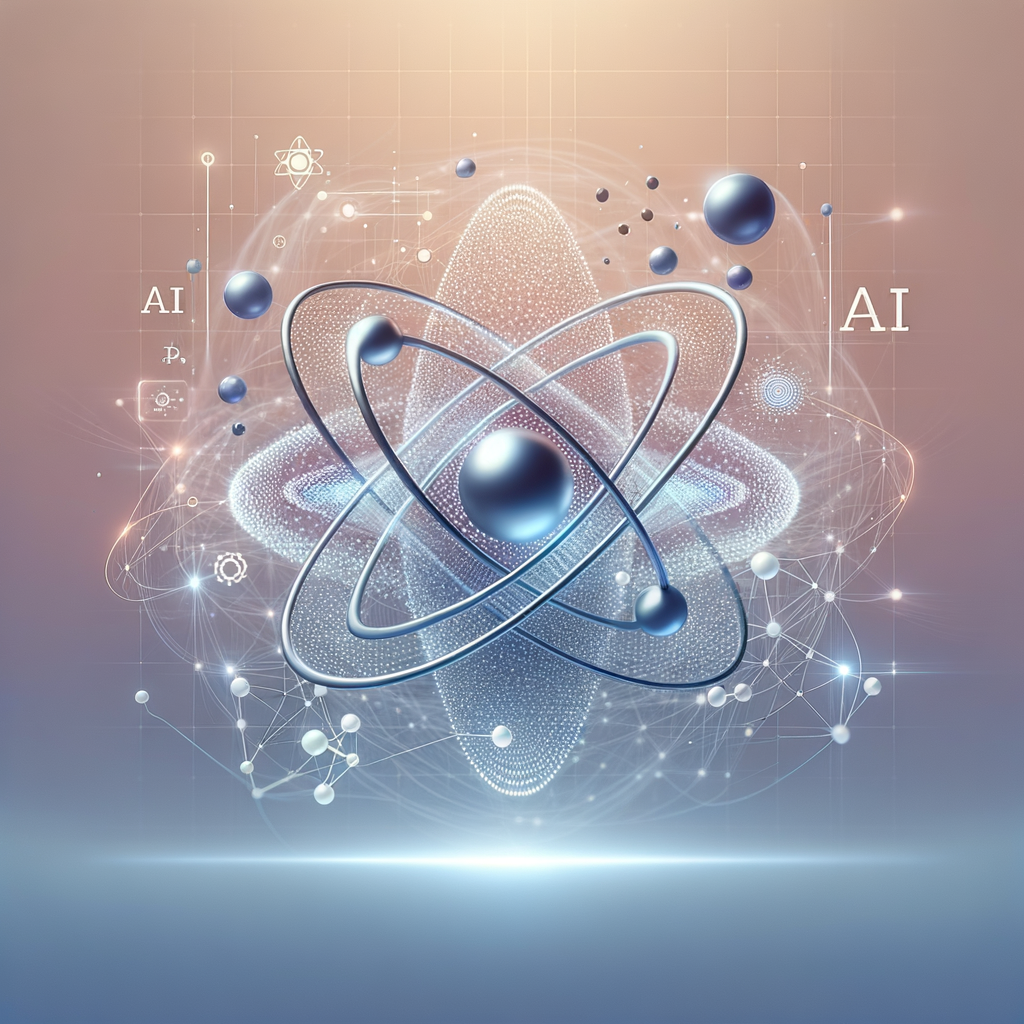
The Quantum Leap: Exploring AI in Quantum Mechanics
Dive into the fascinating intersection of artificial intelligence and quantum mechanics. Discover how AI is revolutionizing the way we understand and interact with the quantum world, enabling breakthroughs in research and technology. This blog explores cutting-edge advancements and the potential future impact of AI-driven quantum innovations.
The Quantum Leap: Exploring AI in Quantum Mechanics
Quantum mechanics and artificial intelligence (AI) are two of the most radical fields of study that have transformed our understanding of the universe and the potential of computational technologies. When integrated, their confluence promises to redefine the limits of what we can achieve in technology and science. In this exploration, we delve into how AI is being utilized to transcend traditional computational methods in quantum physics, bringing about unprecedented advancements and possibilities.
Understanding Quantum Mechanics
Quantum mechanics, at its essence, is the study of the smallest particles in the universe – electrons, photons, and atoms. Unlike classical mechanics, quantum mechanics operates on principles that often seem counterintuitive. Concepts such as superposition, entanglement, and quantum tunneling defy traditional logic but are fundamental to the nature of quantum phenomena.
Superposition and Entanglement
- Superposition refers to a quantum system's ability to be in multiple states simultaneously until it is measured and collapsed into a single state.
- Entanglement is a phenomenon where particles become interconnected such that the state of one shares dependencies with the state of another, no matter the distance separating them.
These principles challenge the conventional understanding of physics and require computational models that can handle multiple complex variables concurrently.
The Role of AI in Quantum Mechanics
AI, particularly through machine learning and deep learning models, offers powerful tools for analyzing complex datasets that resemble the uncertain and probabilistic nature of quantum mechanics. Here are a few ways AI is applied in quantum mechanics:
1. Quantum Simulations
Artificial intelligence can simulate quantum environments, predicting outcomes and particle interactions with greater precision than traditional models. AI algorithms can learn patterns and predict quantum behaviors, accelerating research in quantum chemistry and material sciences.
2. Quantum Error Correction
Quantum systems are prone to errors due to decoherence and other quantum phenomena. AI helps in developing sophisticated error-correction algorithms, crucial for the realization of practical quantum computing.
3. Optimizing Quantum Systems
Machine learning models can optimize quantum circuits' designs, leading to more efficient quantum computations with reduced resource requirements. This makes quantum computers more accessible and practical for widespread commercial use.
Breakthroughs in AI and Quantum Mechanics
The symbiotic relationship between AI and quantum mechanics has led to several groundbreaking advancements:
Quantum Machine Learning (QML)
QML fuses quantum computing’s computational superiority with AI's capability for pattern recognition and decision-making. It offers faster and more efficient solutions to traditional machine learning tasks, including data classification and clustering.
Quantum AI Algorithms
Researchers have developed novel AI algorithms optimized for quantum systems, often enhanced by quantum superposition and entanglement properties. These algorithms promise to tackle complex computations more efficiently than classical algorithms.
The Future of AI in Quantum Mechanics
The integration of AI in quantum mechanics is bound to open new frontiers in computing and technology. Scientists predict that AI-driven quantum technologies may herald innovations in:
- Cryptography: Protecting information with quantum cryptography that can detect eavesdropping attempts and protect data integrity.
- Drug Discovery: Discovering new pharmaceuticals by simulating biochemical interactions at a quantum level, reducing time and costs dramatically.
- Financial Modeling: Enhancing predictive accuracy in financial markets by factoring in more variables than traditional models can handle.
Conclusion: A New Era in Technology
As AI continues to evolve and quantum mechanics redefines the limits of computation, their combined potential can lead to a level of technology and understanding once considered hypothetical. From revolutionizing industries to enhancing scientific capabilities, the marriage of AI and quantum mechanics represents a quantum leap into the future.
Join us as we explore these domains that are not just rewriting the scripts of physics and computation but are also charting the future of innovation and discovery.